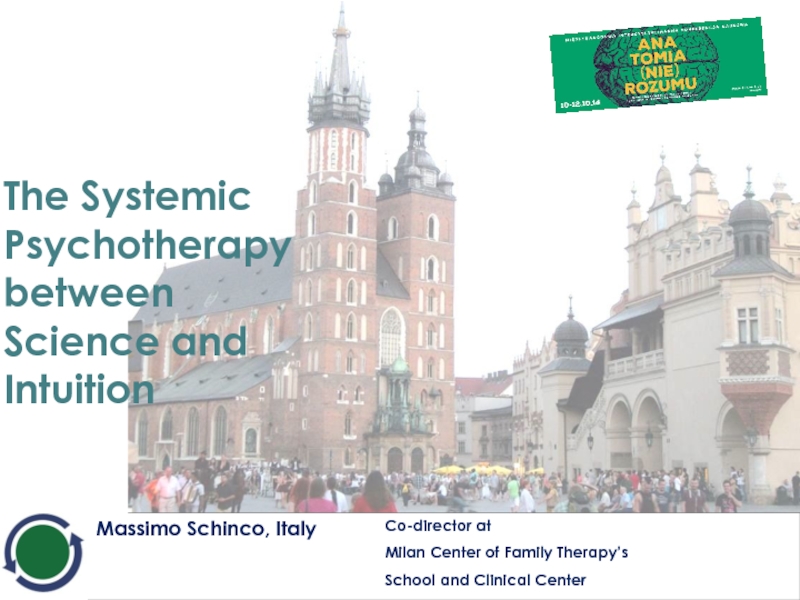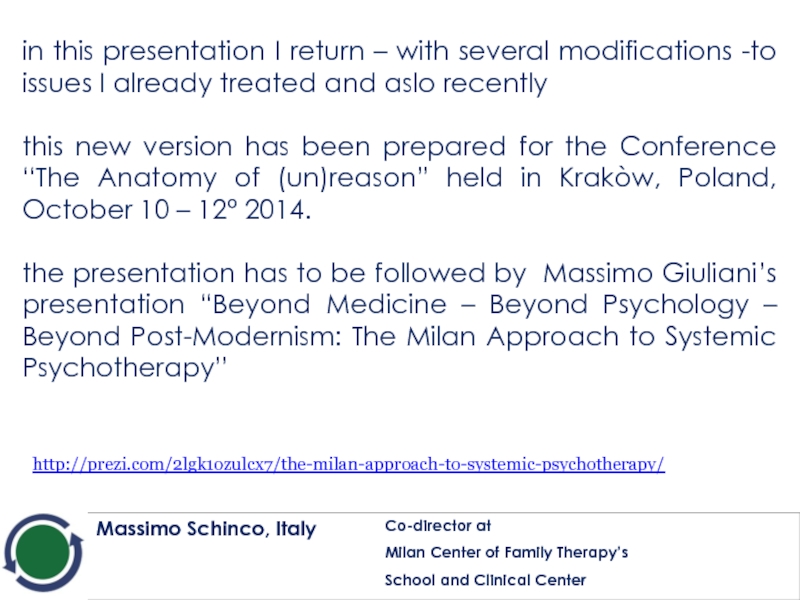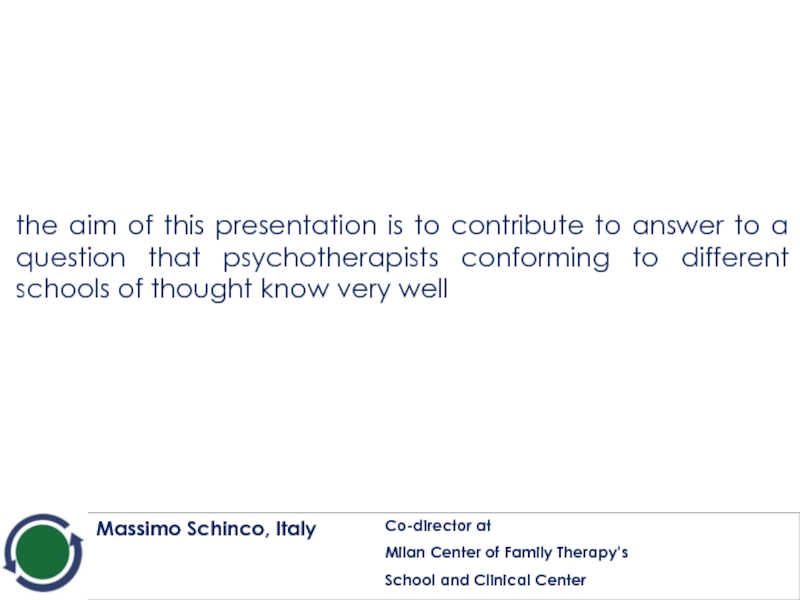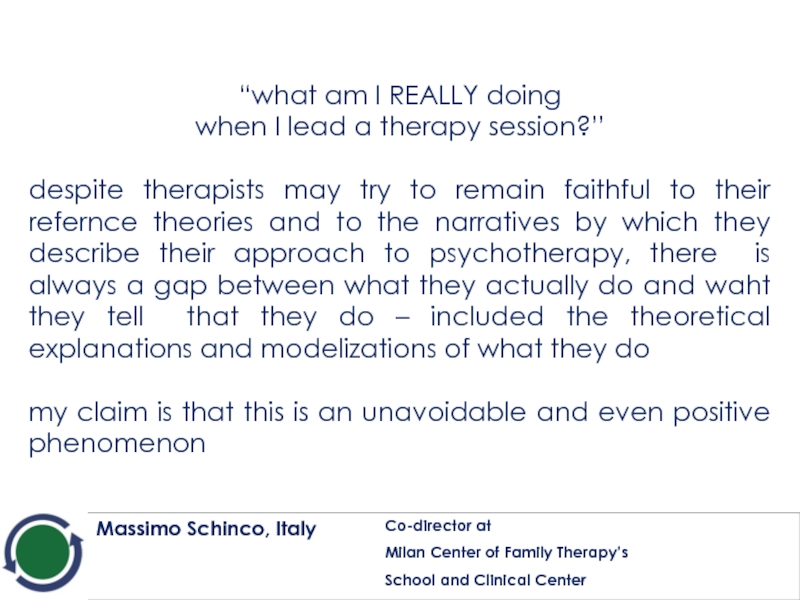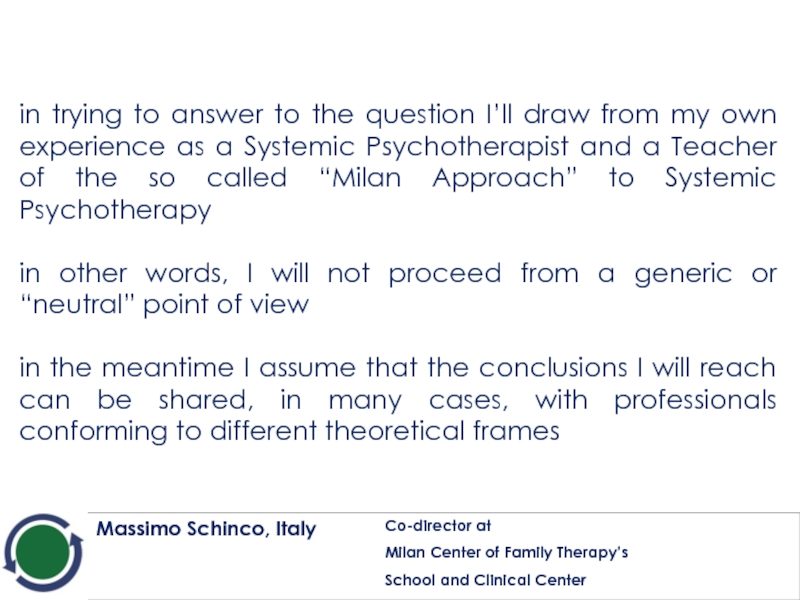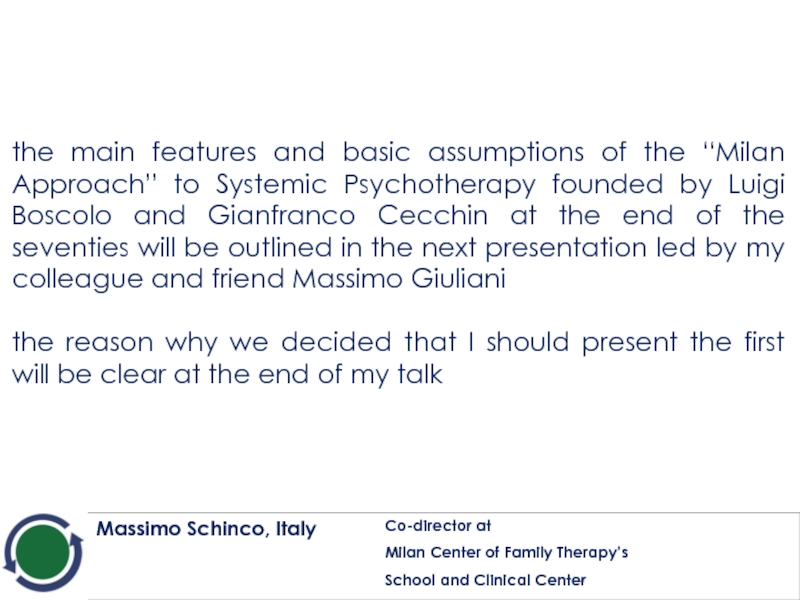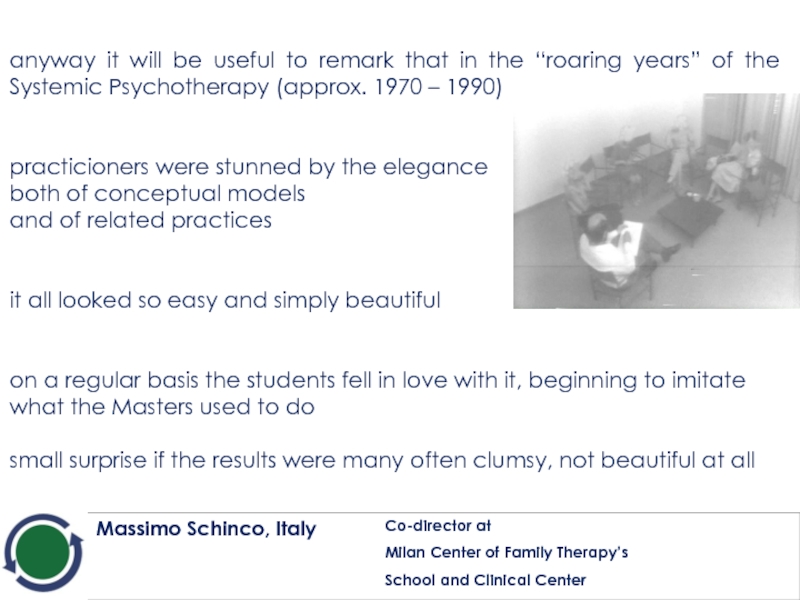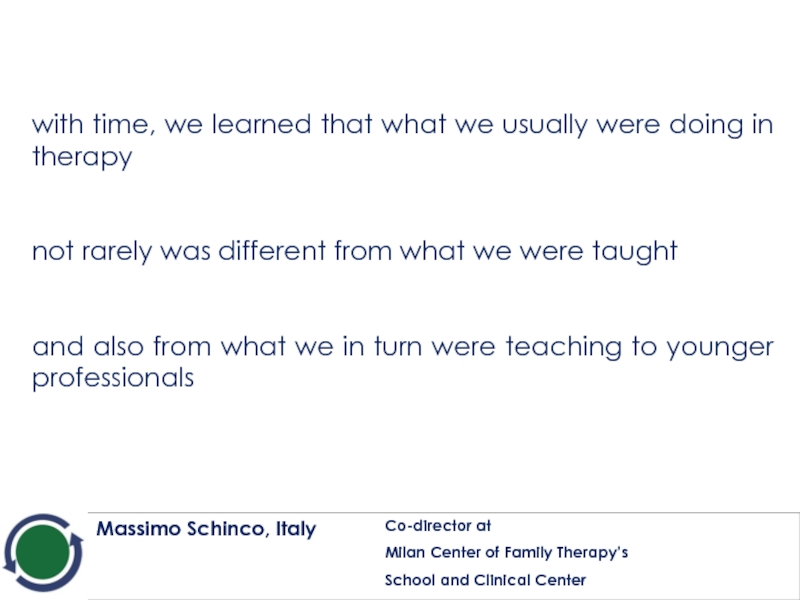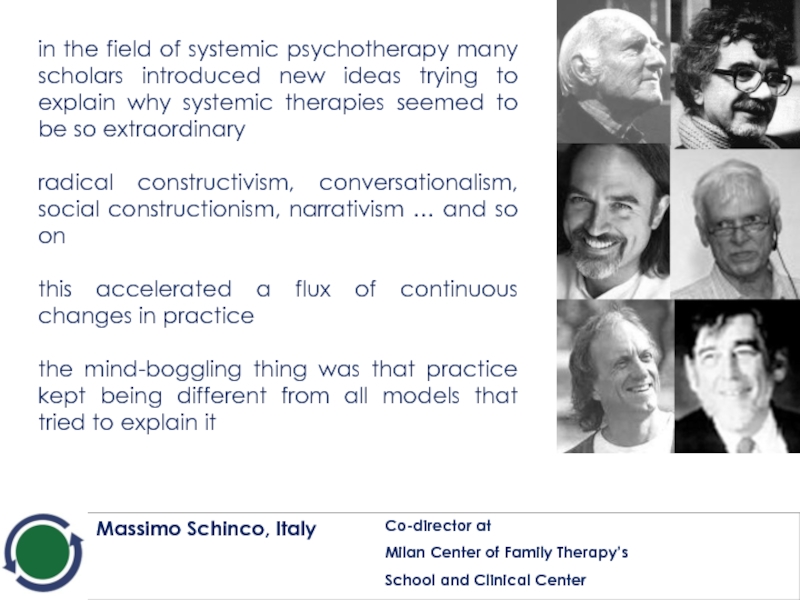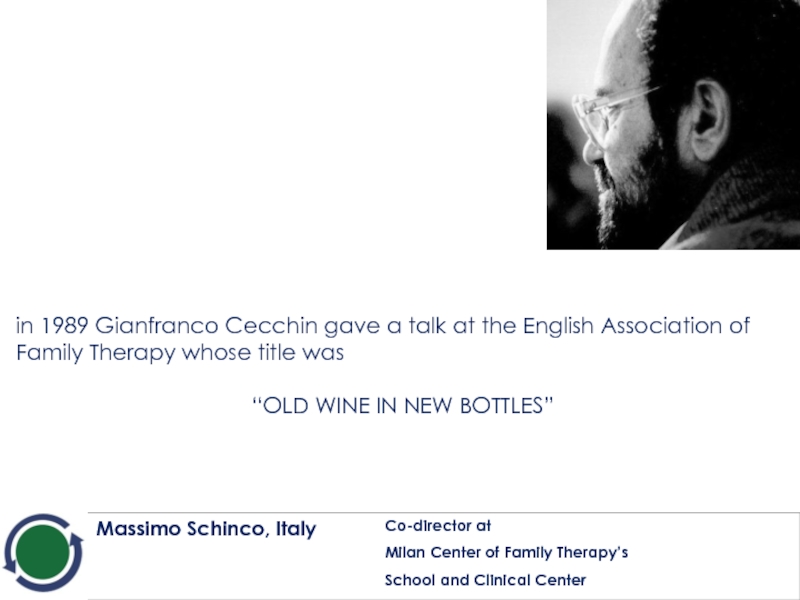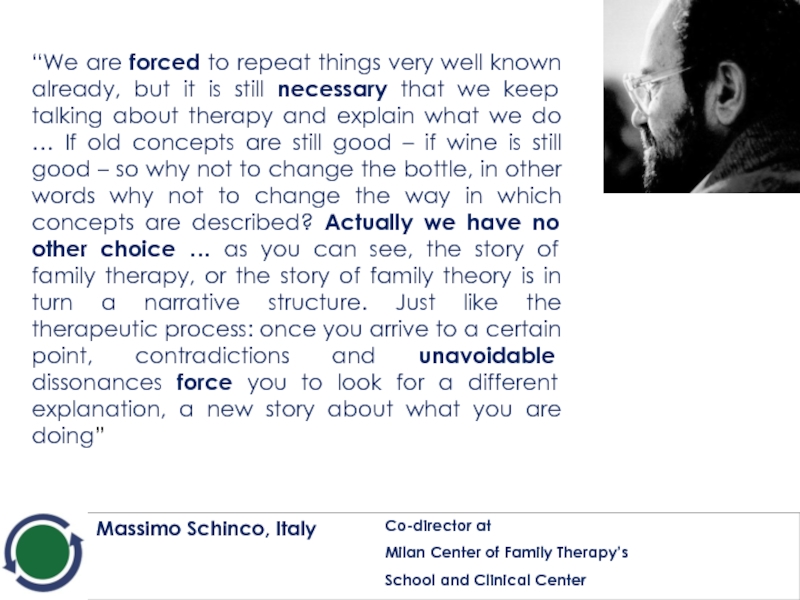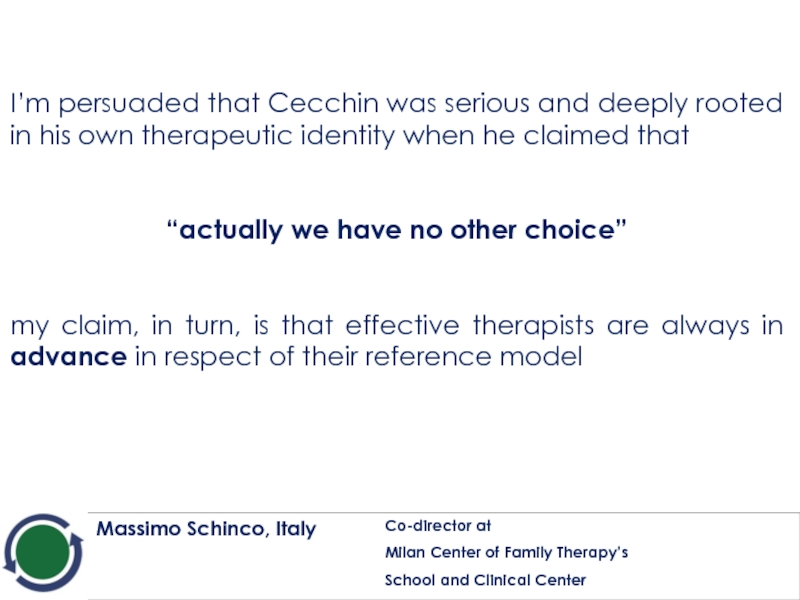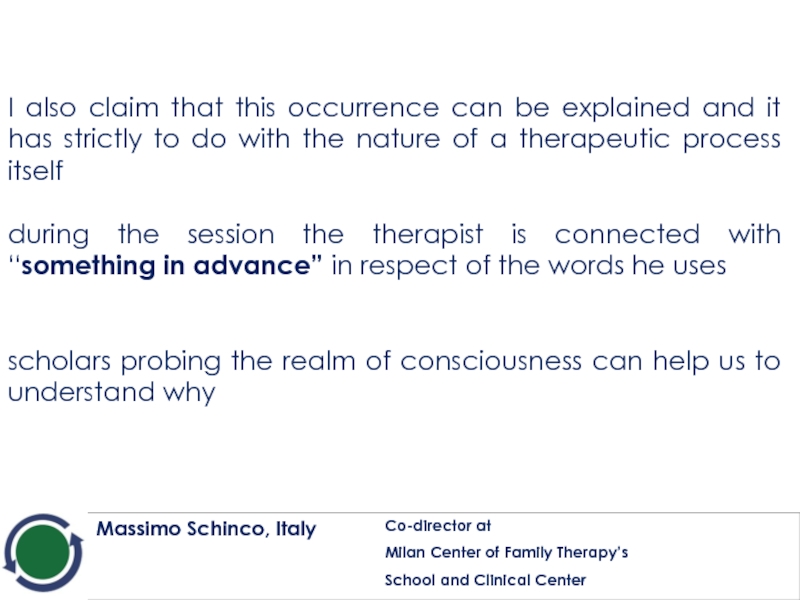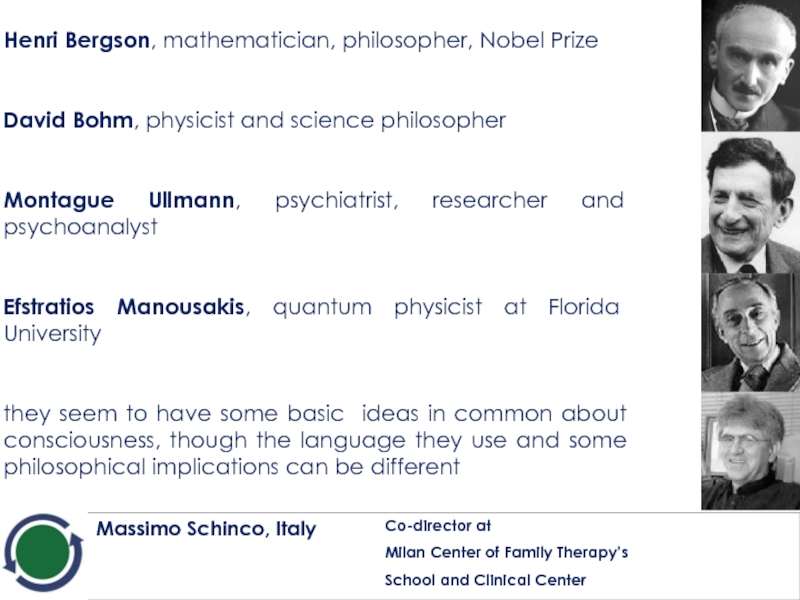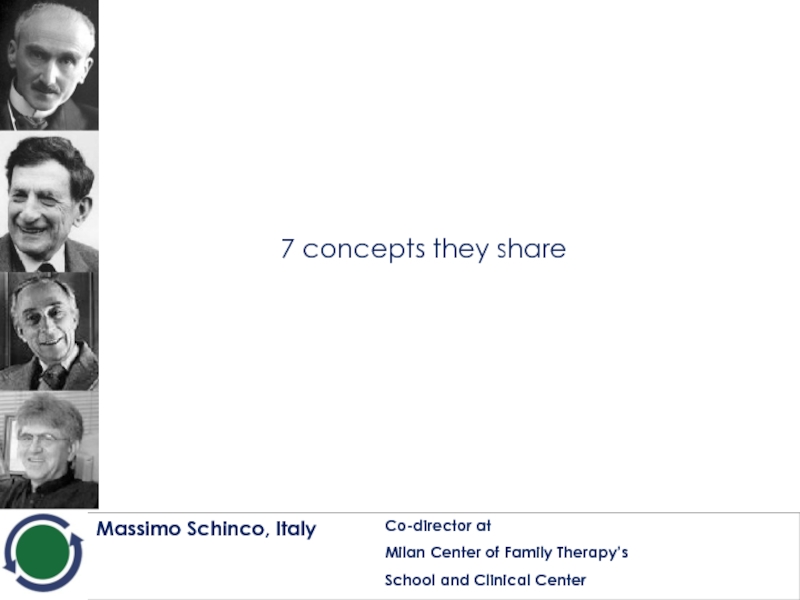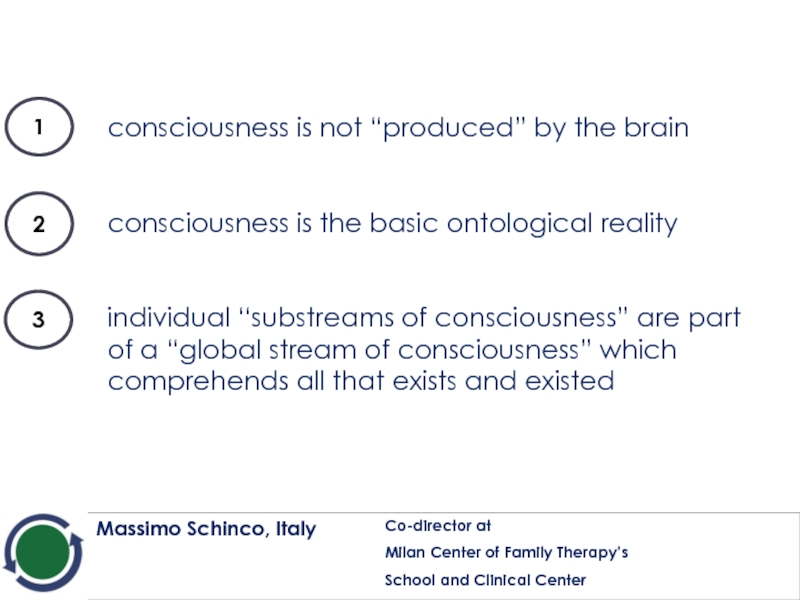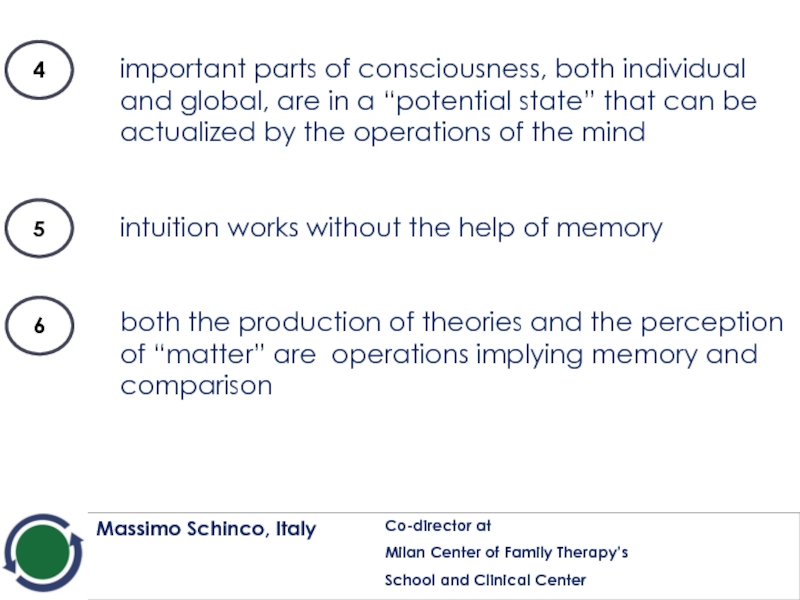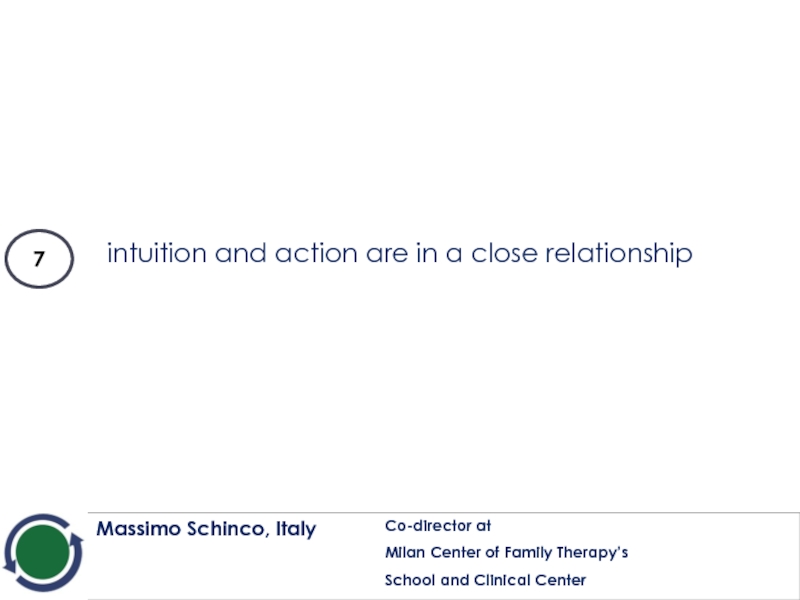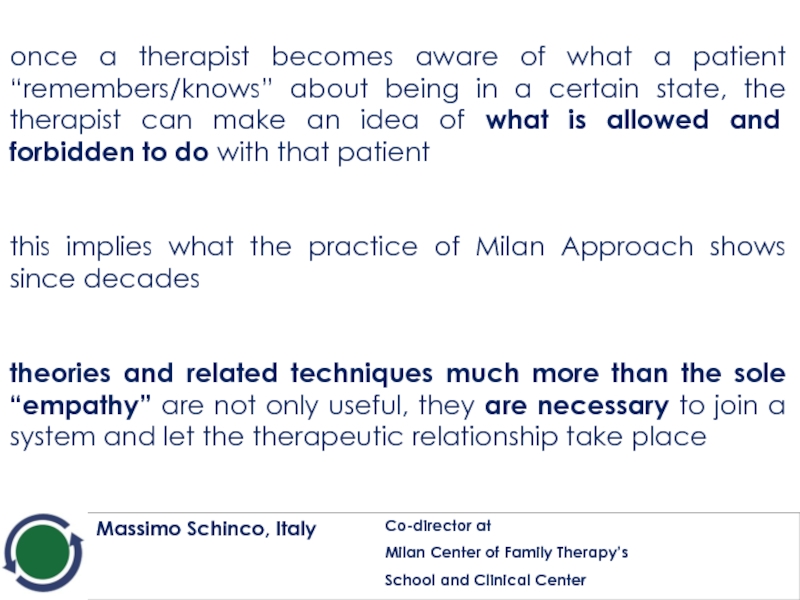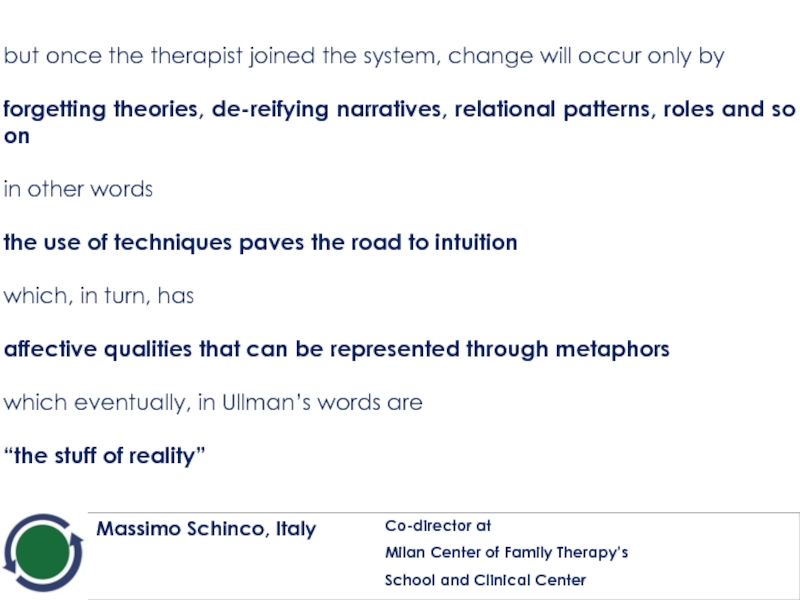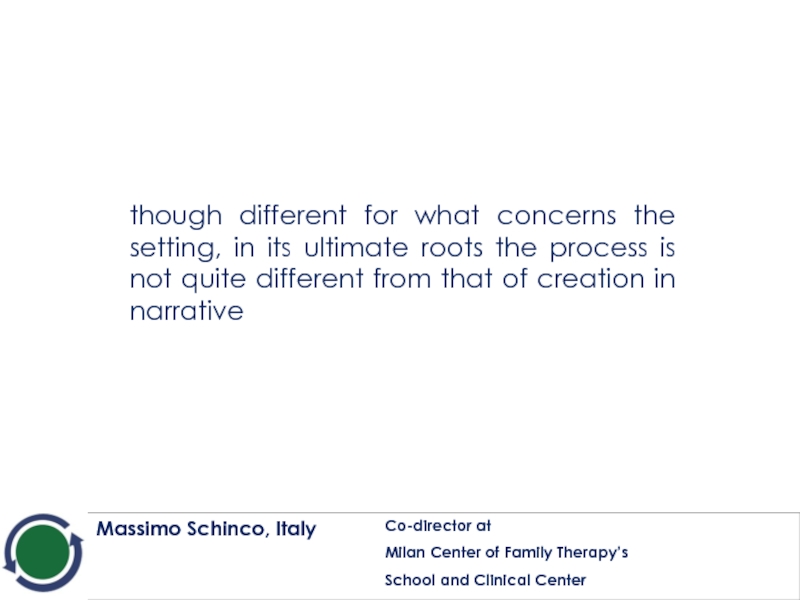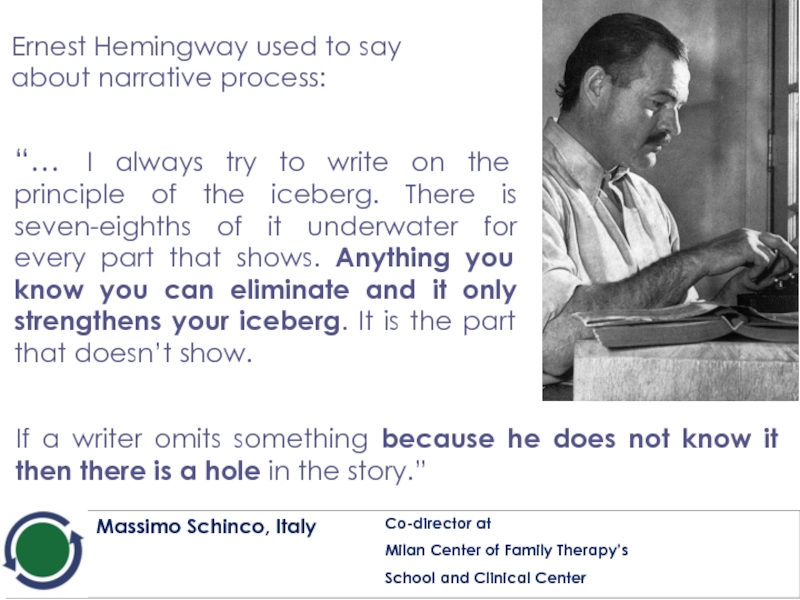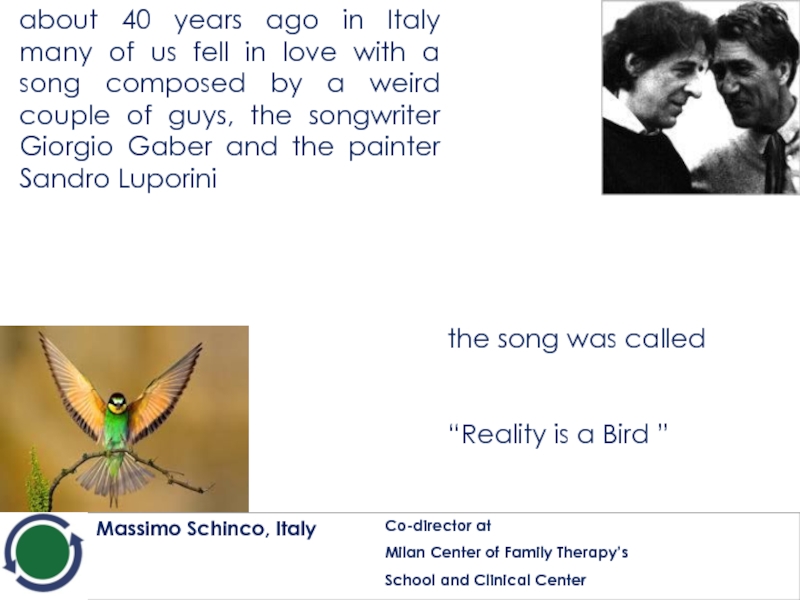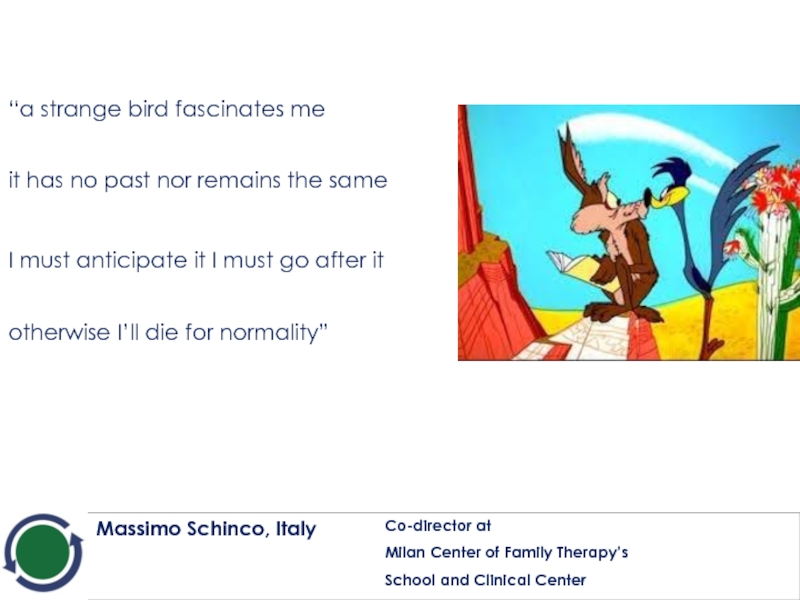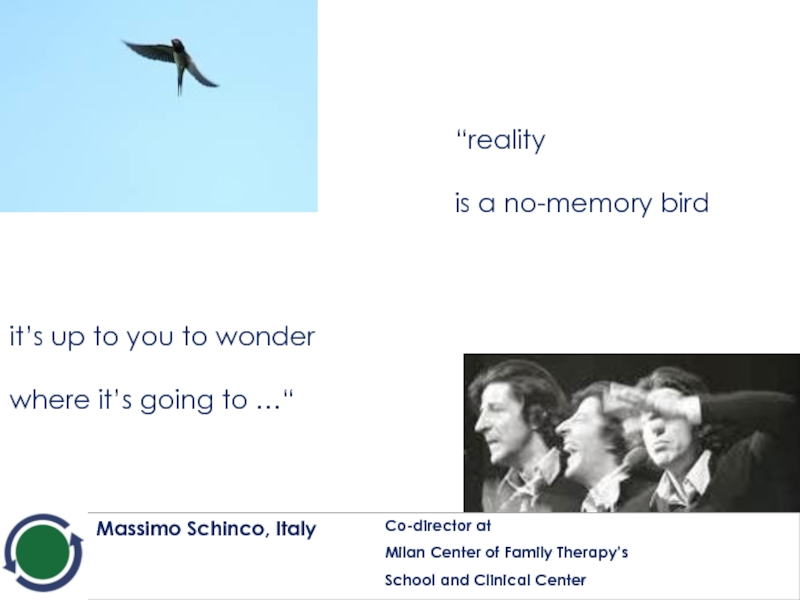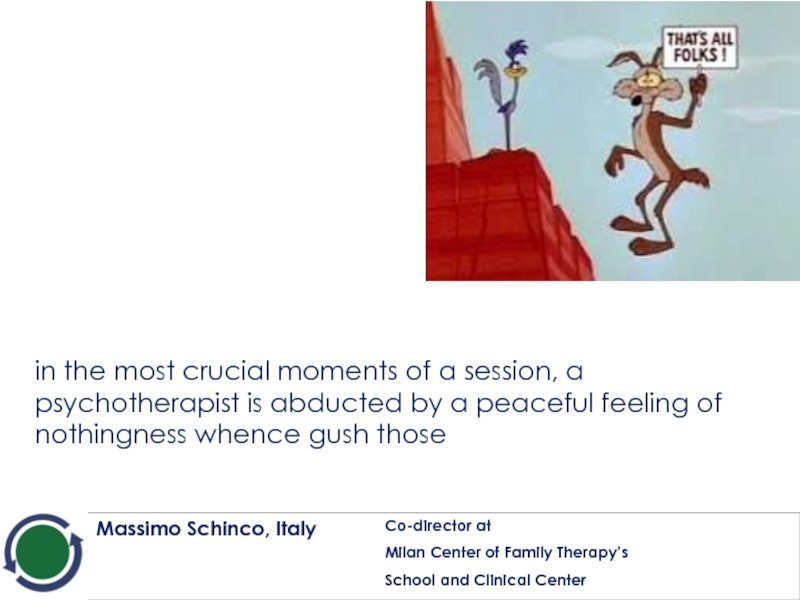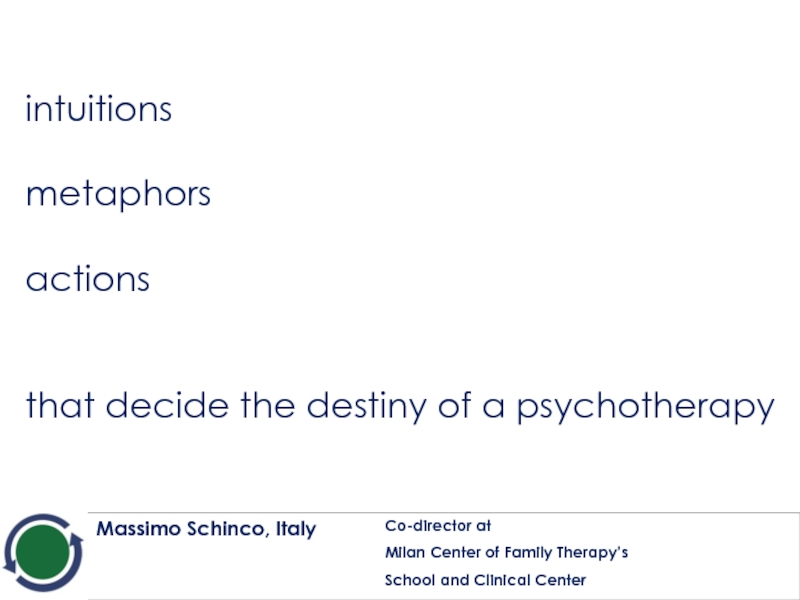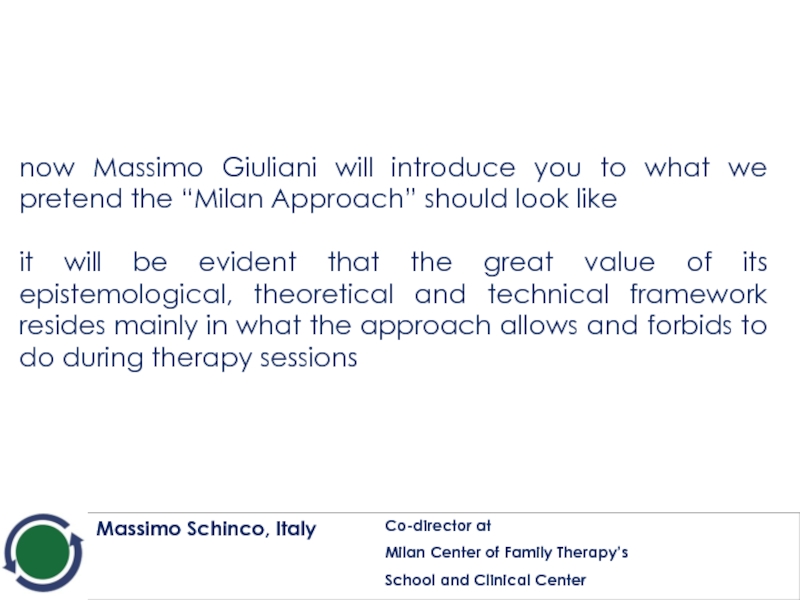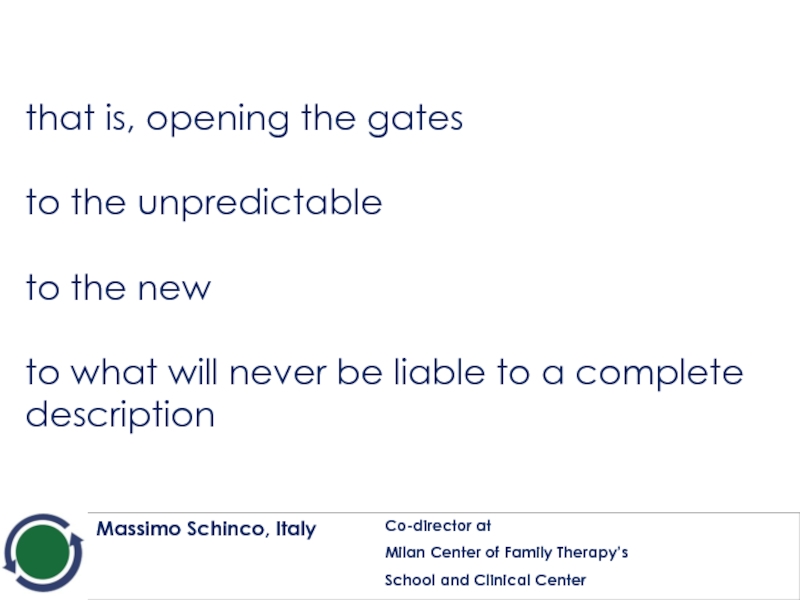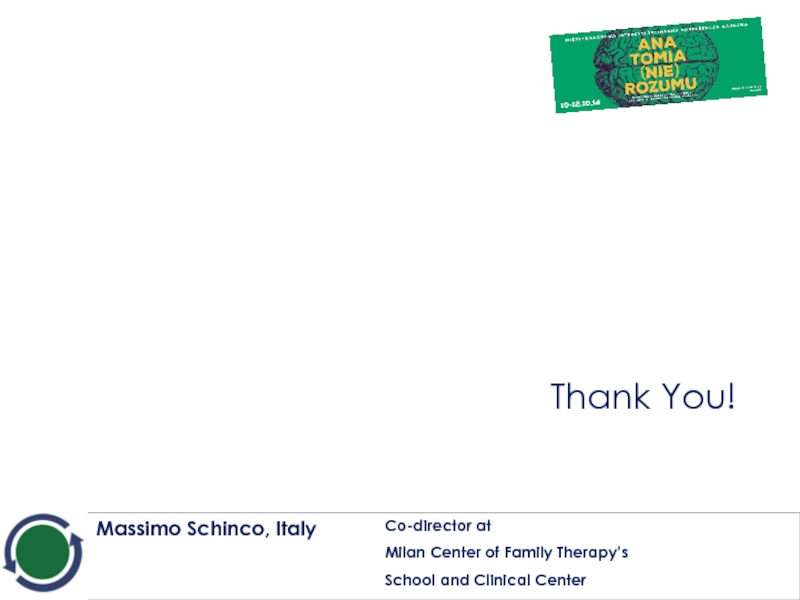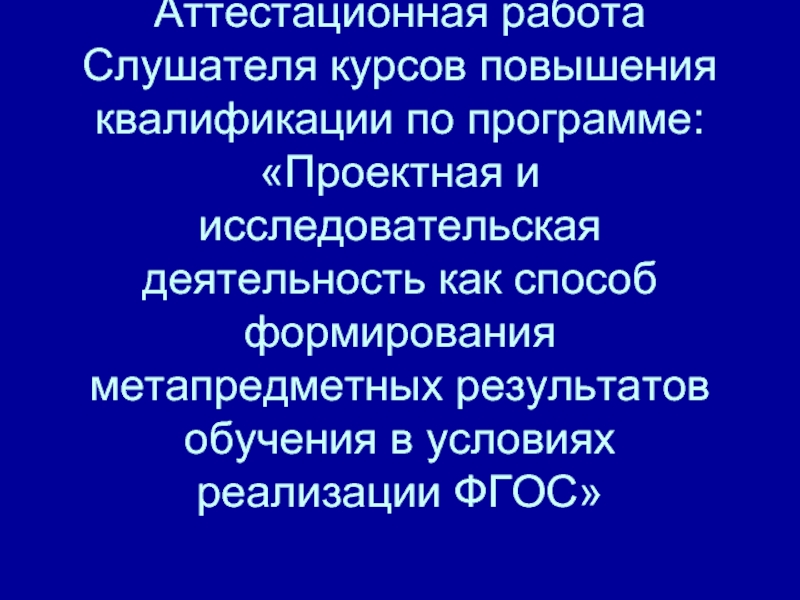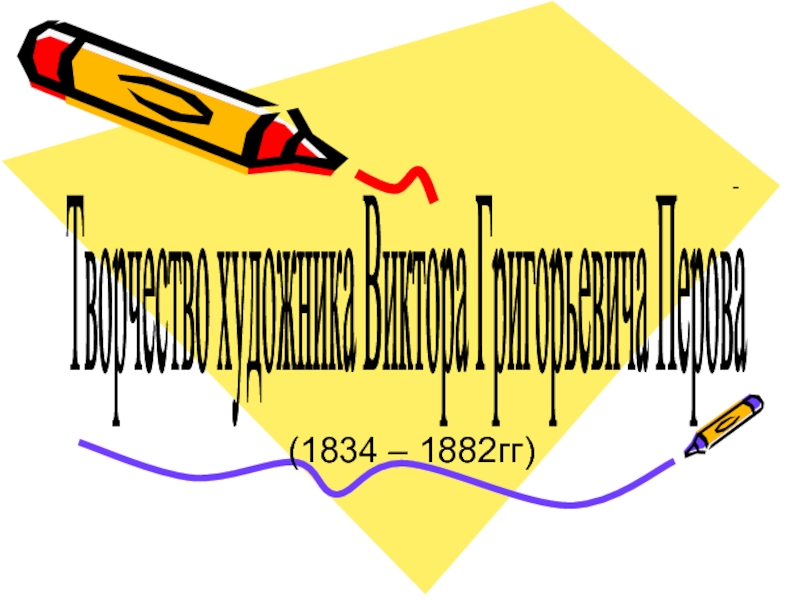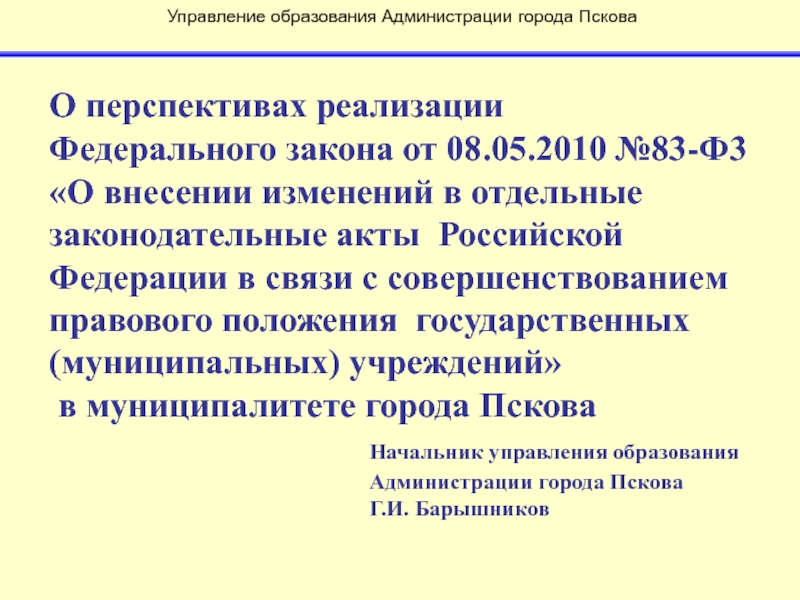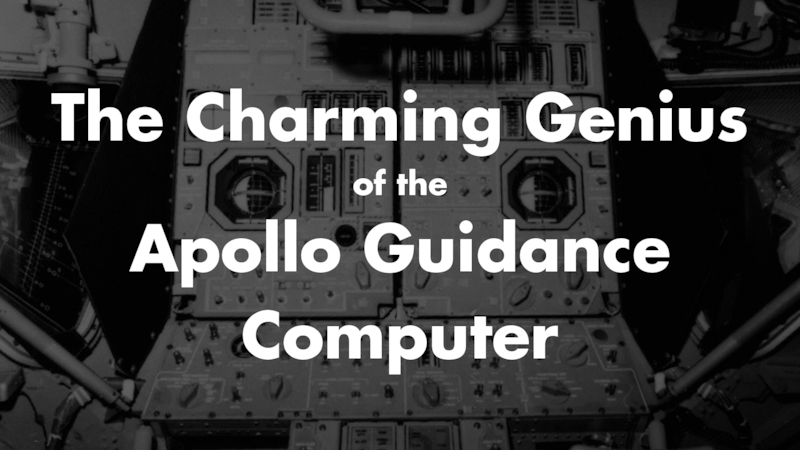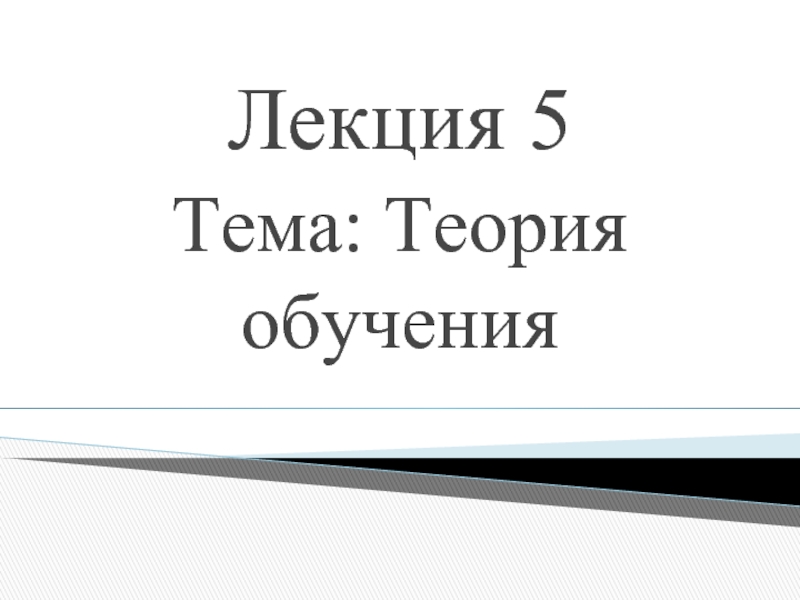- Главная
- Разное
- Дизайн
- Бизнес и предпринимательство
- Аналитика
- Образование
- Развлечения
- Красота и здоровье
- Финансы
- Государство
- Путешествия
- Спорт
- Недвижимость
- Армия
- Графика
- Культурология
- Еда и кулинария
- Лингвистика
- Английский язык
- Астрономия
- Алгебра
- Биология
- География
- Детские презентации
- Информатика
- История
- Литература
- Маркетинг
- Математика
- Медицина
- Менеджмент
- Музыка
- МХК
- Немецкий язык
- ОБЖ
- Обществознание
- Окружающий мир
- Педагогика
- Русский язык
- Технология
- Физика
- Философия
- Химия
- Шаблоны, картинки для презентаций
- Экология
- Экономика
- Юриспруденция
The Systemic Psychotherapy between Science and Intuition презентация
Содержание
- 1. The Systemic Psychotherapy between Science and Intuition
- 2. in this presentation I return – with
- 3. the aim of this presentation is to
- 4. “what am I REALLY
- 5. in trying to answer to the
- 6. the main features and basic assumptions
- 7. anyway it will be useful
- 8. with time, we learned
- 9. in the field of systemic psychotherapy
- 10. in 1989 Gianfranco Cecchin gave
- 11. “We are forced to repeat things very
- 12. I’m persuaded that Cecchin was
- 13. I also claim that
- 14. Henri Bergson, mathematician, philosopher, Nobel
- 15. 7 concepts they share
- 16. consciousness is not “produced” by the
- 17. important parts of consciousness, both
- 18. intuition
- 19. once a therapist becomes aware of
- 20. but once the therapist
- 21. though different for what concerns
- 22. Ernest Hemingway used to say about
- 23. about 40 years ago in Italy many
- 24. “a strange bird fascinates
- 25. it’s up to you to
- 26. in the most crucial
- 27. intuitions metaphors
- 28. now Massimo Giuliani will introduce you
- 29. that is, opening the gates
- 30. Thank You!
Слайд 2in this presentation I return – with several modifications -to issues
this new version has been prepared for the Conference “The Anatomy of (un)reason” held in Krakòw, Poland, October 10 – 12° 2014.
the presentation has to be followed by Massimo Giuliani’s presentation “Beyond Medicine – Beyond Psychology – Beyond Post-Modernism: The Milan Approach to Systemic Psychotherapy”
http://prezi.com/2lgk1ozulcx7/the-milan-approach-to-systemic-psychotherapy/
Слайд 3the aim of this presentation is to contribute to answer to
Слайд 4
“what am I REALLY doing
when I lead a therapy session?”
despite
my claim is that this is an unavoidable and even positive phenomenon
Слайд 5
in trying to answer to the question I’ll draw from my
in other words, I will not proceed from a generic or “neutral” point of view
in the meantime I assume that the conclusions I will reach can be shared, in many cases, with professionals conforming to different theoretical frames
Слайд 6
the main features and basic assumptions of the “Milan Approach” to
the reason why we decided that I should present the first will be clear at the end of my talk
Слайд 7
anyway it will be useful to remark that in the “roaring
practicioners were stunned by the elegance
both of conceptual models
and of related practices
it all looked so easy and simply beautiful
on a regular basis the students fell in love with it, beginning to imitate what the Masters used to do
small surprise if the results were many often clumsy, not beautiful at all
Слайд 8
with time, we learned that what we usually were doing in
not rarely was different from what we were taught
and also from what we in turn were teaching to younger professionals
Слайд 9
in the field of systemic psychotherapy many scholars introduced new ideas
radical constructivism, conversationalism, social constructionism, narrativism … and so on
this accelerated a flux of continuous changes in practice
the mind-boggling thing was that practice kept being different from all models that tried to explain it
Слайд 10
in 1989 Gianfranco Cecchin gave a talk at the English Association
“OLD WINE IN NEW BOTTLES”
Слайд 11“We are forced to repeat things very well known already, but
Слайд 12
I’m persuaded that Cecchin was serious and deeply rooted in his
“actually we have no other choice”
my claim, in turn, is that effective therapists are always in advance in respect of their reference model
Слайд 13
I also claim that this occurrence can be explained and it
during the session the therapist is connected with “something in advance” in respect of the words he uses
scholars probing the realm of consciousness can help us to understand why
Слайд 14
Henri Bergson, mathematician, philosopher, Nobel Prize
David Bohm, physicist and science philosopher
Montague
Efstratios Manousakis, quantum physicist at Florida University
they seem to have some basic ideas in common about consciousness, though the language they use and some philosophical implications can be different
Слайд 16
consciousness is not “produced” by the brain
consciousness is the basic ontological
individual “substreams of consciousness” are part of a “global stream of consciousness” which comprehends all that exists and existed
Слайд 17
important parts of consciousness, both individual and global, are in a
intuition works without the help of memory
both the production of theories and the perception of “matter” are operations implying memory and comparison
Слайд 19
once a therapist becomes aware of what a patient “remembers/knows” about
this implies what the practice of Milan Approach shows since decades
theories and related techniques much more than the sole “empathy” are not only useful, they are necessary to join a system and let the therapeutic relationship take place
Слайд 20
but once the therapist joined the system, change will occur only
forgetting theories, de-reifying narratives, relational patterns, roles and so on
in other words
the use of techniques paves the road to intuition
which, in turn, has
affective qualities that can be represented through metaphors
which eventually, in Ullman’s words are
“the stuff of reality”
Слайд 21
though different for what concerns the setting, in its ultimate roots
Слайд 22Ernest Hemingway used to say
about narrative process:
“… I always try
If a writer omits something because he does not know it then there is a hole in the story.”
Слайд 23about 40 years ago in Italy many of us fell in
the song was called
“Reality is a Bird ”
Слайд 24
“a strange bird fascinates me
it has no past nor remains
I must anticipate it I must go after it
otherwise I’ll die for normality”
Слайд 26
in the most crucial moments of a session, a psychotherapist is
Слайд 28
now Massimo Giuliani will introduce you to what we pretend the
it will be evident that the great value of its epistemological, theoretical and technical framework resides mainly in what the approach allows and forbids to do during therapy sessions
